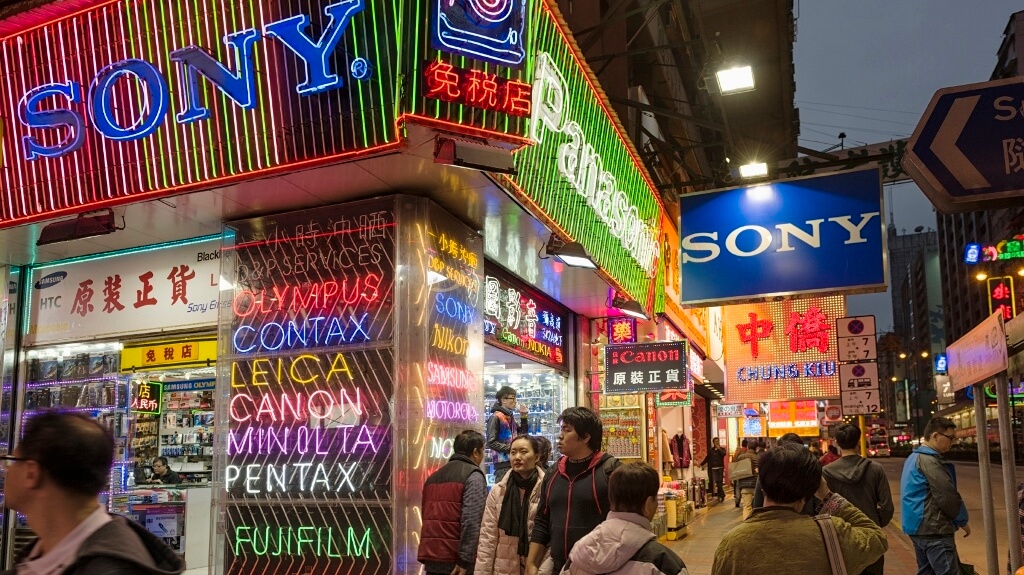Emerging brands copy successful ones all the time. Here's why that's a marketing strategy you need to avoid.
Why It's Important To Embrace The Difference
Emerging brands copy successful ones all the time. Here's why that's a marketing strategy you need to avoid.

As a child I remember being told off by my parents and them saying sternly to me “If he jumped off a cliff, would you?” I am sure I was caught doing something I shouldn’t have, and my likely response was the classic “Well HE did it!”. Looking back at it now, it makes perfect sense that copying someone without considering the consequences isn’t a smart move.
With that in mind, you would be shocked to learn how many times companies approach us to work with them, and pretty much the first sentence out of their mouth is “we would love to see your creativity, but, if we could look like X competitor that would be great”.
As branding consultants (and through our Brand thinking™ process) we work very hard with our clients to understand their individual needs, their individual USPs and the reasons that their customers choose them over their competitors.
So to hear the words “we want to look like…” sends chills down our spine. With that in mind, I felt it was worth exploring the reasons why this happens and what clients feel they can gain, but in reality what they miss out on with their own brands.
The perception of what is to be gained
Gravitas (a market leader position)
Clients often ask to look like who they believe to be the market leader. This could be a perception which is built out of experience, hearsay or a historical knowledge that X competitor is the the best. The problem with this logic can often be that the chosen business may be seen historically as a market leader within the sector, but externally (and most importantly to potential customers) they could be seen as out-of-touch, old-fashioned or just generally not appealing.
See also:
5 Branding Trends That Took Shape In 2015
What Can You Do When Customers Love Your Products But Not Your Brand?
The Importance Of Building Your Personal Brand (And How You Can Do It)
This is also true when clients ask to look like the biggest organisation in the market. We understand that the client feels like “it worked for them, so it will work for us”, but that is very rarely true.
Company X owns that look and owns that brand perception in the mind of the customer – by trying to move into that sphere you only appear to be a ‘wannabe’, a company devoid of ideas, or worse, just a company that copies others. For all of our clients, that is certainly not the case and it’s a trap we try and steer them away from.
Let’s take the supermarket sector as an example:
Historically Tesco have been the largest organisation in the sector. If Aldi and Lidl went to their design teams and said “we want to look like Tesco”, what would that have done for their business? They would have been creating a brand and visualisation that was tired, dated, had poor brand perception and ultimately their own brands would have been damaged.
However, they looked at their situation, understood their position, assessed their USPs of price and quality and they delivered new brand campaigns, built a brand which is focussed at their target market – and have created a buzz with new and existing customers.
If they had blindly said – “we want to look like Tesco”, they would not be taking a 10% share of British grocery sales – an increase of 50% from only three years ago and rising.
The big boys are not always the best
There is a perception in some sectors, that the biggest players do it best – and that just isn’t true.
Yes there are some large companies whose brand, message and offering you can stand back and admire, for example the Apples and BMWs of this world. But, more often than not, the biggest player is by no means the best when it comes to branding, messaging, offering and generally engaging with their customers.
Let’s take the estate industry sector as an example. Very often clients will come to us and say “we want to look like Foxtons” – and our response is a flat-out “why?”. A myriad of answers will come flying back but normally it boils down to “they are the biggest, therefore they must be doing it right” But is that really true?
Does Foxtons fill you with brand warmth? Do they make you feel energised to work with them? Or does their brand fill your brain with images of walls of Peroni in fridges? Or Minis running around with a massive ‘F’ in a circle on the side? What does the ‘F’ stand for other than Foxtons? Is looking like a glass pub what your brand really needs or wants?
As a consumer/competitor you know the Foxtons brand because of the sheer scale of the business. If you live or have visited London you can’t fail to see the ‘F’ chasing down houses or on what feels like every other street corner, but, if your estate agency is in Newcastle and called Taylors, what relevance would a capital T in a circle have to anyone? None! You have not earned the right to be known by your brand yet – you have to build that through brand understanding.
All joking aside, Foxtons have been a stand-out brand success – but it’s certainly not just from putting an ‘F’ in a circle. They have worked very hard at growing quickly and aggressively, and building a brand which is very specific for a London audience.
They considered the market, did their research, understood their potential and most importantly they did something different! As a species and a culture, we applaud difference when we know it is a success, but before that point we look upon difference with suspicion and fear.
As branding consultants, our role is to work in the realms of difference, to see the gap in the market and to find the hook that takes our clients from ‘just another business’ to the brand which resonates with the target audience on an emotional level – the business they are drawn to, like a moth to the flame, when the time comes that they need their services.
What that hook is depends on each individual client and their goals – but we are certain the answer does not lay in looking at competitors and blindly following their lead.
Our top 5 tips for companies who want to stand out:
- Stand out by standing for something you are proud of.
- Look internally before looking externally – the difference is within you.
- Listen to advisors – if you employ a branding agency then use them, listen to them and allow them the freedom to work in the realms of difference.
- Take a risk – albeit a calculated one. You won’t achieve anything by just ‘fitting in’.
- Most importantly – embrace the difference. Be proud of the differences between you and your competitors and your clients and customers will be proud to work with you.
Thanks for signing up to Minutehack alerts.
Brilliant editorials heading your way soon.
Okay, Thanks!



